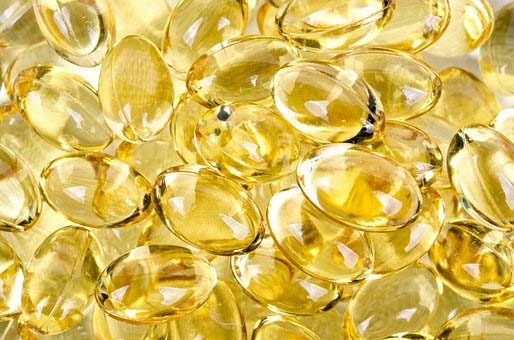VITAMIN D and COVID
Vitamin D and COVID were linked during the early part of the pandemic. But is vitamin D really a cheap and easy panacea for the prevention, treatment or
cure of COVID or has scientific evidence
shown that it is merely a placebo?
At one point in time, Vitamin D was not only seen as the prevention, treatment or cure for COVID, but for everything from heart attack to cancer!
From early in the pandemic, researchers studied people who got COVID and found that those with low levels of vitamin D did worse than those who were not deficient in the vitamin. These unscientific observations ignored the fact that people with low vitamin D levels are more often older and sicker than the general population and will most likely have worse outcomes if they catch COVID.
At this point in time, accumulated results from properly run randomized trials have shown that vitamin D does not help prevent, treat or cure COVID nor is it recommended for the prevention, treatment or cure of several other diseases it was tested for.
Science-based evidence from properly controlled randomized trials is really the only way we can know what works, before millions, if not billions of dollars are spent on a specific treatment. Below are some results of randomized clinical trials (as of November 2022) involving vitamin D with COVID and some other diseases:
RESULTS OF CLINICAL TRIALS INVOLVING VITAMIN D WITH
COVID AND SOME OTHER DISEASES
- Genetic evidence and even early randomized data suggested that low vitamin D levels did not increase the risk of catching or being hospitalized with COVID and showed no benefit when used in ICU patients with COVID.
- Several clinical trials have been used to find out if vitamin D could help reduce the risk of cardiovascular disease, heart attack, stroke or death. The results thus far have shown that vitamin D cannot reduce those risks.
- In terms of cancer risk, randomized trials showed that vitamin D did not prevent breast, prostate or colon cancer, or cancer deaths overall.
- Vitamin D was also shown not to reduce the risk of developing diabetes in patients who were pre-diabetic.
- It was also found that vitamin D did not help preserve kidney function in people with diabetes.
- After a multiple year follow-up, giving vitamin D to pregnant women did not reduce the probability that their children would develop asthma.
- A link between low vitamin D levels and Alzheimer’s Disease has also not been scientifically established.
WHAT CAN VITAMIN D ACTUALLY
DO FOR US?
Vitamin D plays an essential role in our bodies by absorbing calcium from our intestines, which is absolutely necessary for proper bone strength. Our bodies can only absorb calcium, the primary component of bone, when vitamin D is present. Vitamin D also regulates many other cellular functions in our bodies.
Direct sunlight will convert a chemical in our skin into an active form of vitamin D (calciferol). The use of sunscreen can diminish the effect, but the risk of skin cancer is always present as well.
Unfortunately, vitamin D isn't naturally found in many foods but can be obtained from fortified foods such as milk, fortified cereal, and fatty fish such as salmon, mackerel, and sardines.
For people who do not get enough sun exposure, taking a vitamin D supplement may help improve bone health. Always have a doctor check blood levels of this vitamin first. Too much vitamin D in the form of supplements can be harmful. (See below.)
The recommended daily amount of vitamin D is 400 international units (IU) for children up to age 12 months, 600 IU for people ages 1 to 70 years, and 800 IU for people over 70 years.
WHY DID EARLY RESEARCH
FIRST SUGGEST VITAMIN D
FOR COVID and OTHER DISEASES?
Most of the original studies of vitamin D were based on association from observation. For example, people with low vitamin D levels in their blood had higher rates of cancer and heart disease, etc. And, as mentioned above, so did many of those who got COVID. Therefore, it could be intuitive to think that vitamin D deficiency was the cause of these diseases. But, a third common variable was probably at play:
- People with Alzheimer’s disease and other chronic illnesses, as well as COVID, become less mobile, less independent, and more socially isolated and they go out less. When they go out less, they become less exposed to sunshine and their vitamin D levels fall. Vitamin D is not the cause, it is the effect.
- People with chronic illnesses such as cancer or arthritis may have less healthy diets leading to lower vitamin D blood levels. Again, vitamin D is not the cause, it is the effect.
Thus, we have what is known as reverse causation. People who are sick tend to develop a vitamin D deficiency. But a vitamin D deficiency does not make people sick. These vitamin D assumptions prove again why science-based evidence from randomized trials are essential for sifting out truth from observation and false assumptions.
AVAILABLE CURRENT SCIENCE-BASED EVIDENCE THAT SHOWS VITAMIN D SUPPLEMENTS CAN BE
HELPFUL FOR CERTAIN CONDITIONS:
- Inherited bone disorders. Vitamin D supplements can be used to help treat inherited disorders resulting from an inability to absorb or process vitamin D, such as familial hypophosphatemia.
- Multiple sclerosis. Research suggests that long-term vitamin D supplementation reduces the risk of multiple sclerosis.
- Osteomalacia. Vitamin D supplements are used to treat adults with severe vitamin D deficiency, resulting in loss of bone mineral content, bone pain, muscle weakness and soft bones (osteomalacia).
- Osteoporosis. Studies suggest that people who get enough vitamin D and calcium in their diets can slow bone mineral loss, help prevent osteoporosis, and reduce bone fractures.
- Psoriasis. Applying vitamin D or a topical preparation that contains a vitamin D compound called calcipotriene to the skin can treat plaque-type psoriasis in some people.
- Rickets. This rare condition develops in children with vitamin D deficiency. Supplementing with vitamin D can prevent and treat the problem. Today, however, because of widespread vitamin D supplementation of infant formula, milk, and cereals, rickets is very rare because most people have adequate levels of vitamin D in their blood.
WHAT TO KNOW BEFORE TAKING VITAMIN D SUPPLEMENTS
Before taking any vitamin D supplements, it would be prudent to test for actual levels of the vitamin in the blood. Taking too much vitamin D in the form of supplements can be harmful.
Below are some side effects of more than 4,000 IU a day of vitamin D for children aged 9 years and older, adults, and pregnant and breastfeeding women:
- Nausea and vomiting
- Poor appetite and weight loss
- Constipation
- Weakness
- Confusion and disorientation
- Heart rhythm problems
- Kidney stones and kidney damage
Interactions with certain drugs can also possibly affect the way your body processes drugs. Some of these are:
- anticonvulsants
- the cholesterol drug Lipitor (Atorvastatin) and the cholesterol-lowering drug Cholestyramine (Prevalite),
- some psoriasis drugs
- certain blood pressure drugs such as Diltiazem and others
- the heart medication, Digoxin (Lanoxin)
- thiazide diuretics for high blood pressure
- steroids such as Prednisone
- long-term use of stimulant laxatives
- weight-loss drugs such as Orlistat (Xenical, Alli)
Vitamin D can affect the way your body processes these drugs but some of them can also interfere with vitamin D’s ability to absorb needed calcium. Please see Vitamin D - Mayo Clinic for more information.
SUMMARY
Vitamin D helps to promote healthy bones and it does have anti-inflammatory, antioxidant, and neuroprotective properties that support immune health, muscle function, and brain cell activity.
However, the other touted benefits of vitamin D, especially as a prevention, treatment or cure for COVID are doubtful, according to current scientific, evidence-based randomized trials.
Please note: Information from McGill University Office for Science and Society was used with permission.
"The Cleanest Clean You've Ever Seen."
by
ABC Oriental Rug & Carpet Cleaning Co.
130 Cecil Malone Drive Ithaca, NY 14850
607-272-1566







